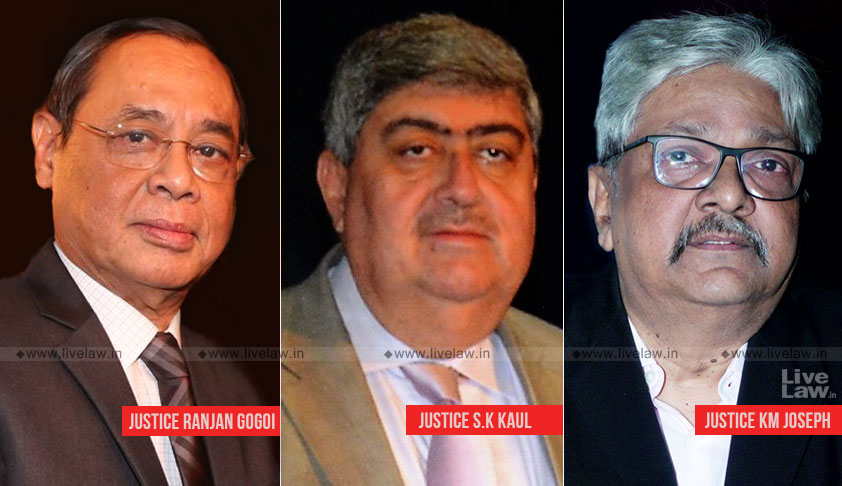CJI Ranjan Gogoi And Justices SK Kaul And KM Joseph To Hear Fresh Petitions On Sabarimala On Nov 13
MEHAL JAIN
3 Nov 2018 4:41 PM IST

Next Story
3 Nov 2018 4:41 PM IST
The Supreme Court bench of Chief Justice Ranjan Gogoi and Justices S. K. Kaul and K. M. Joseph will consider three fresh petitions regarding the entry of menstruating women between the ages of 10 and 50 years to the Sabarimala, Temple on November 13Earlier on October 23, the Chief Justice had announced that the Apex court will hear the 19 review petitions filed against the Sabarimala verdict...
